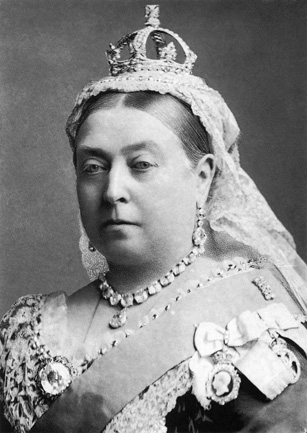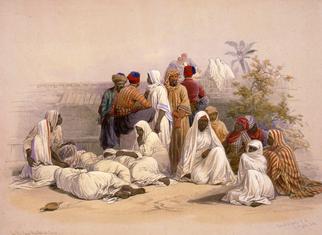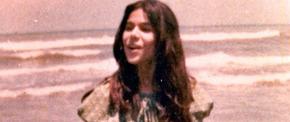The views expressed in our content reflect individual perspectives and do not represent the authoritative views of the Baha'i Faith.
In 1839, long before he became the prophet and founder of the Baha’i Faith, Baha’u’llah liberated a number of Ethiopian slaves in Persia.
Baha’u’llah also first originated the racially ennobling “pupil of the eye” metaphor to describe the special gift that African Americans – and all people of African descent – offer the world, according to Abdu’l-Baha:
‘Baha’u’llah,’ Abdu’l-Baha moreover has said, ‘once compared the colored people to the black pupil of the eye surrounded by the white. In this black pupil is seen the reflection of that which is before it, and through it the light of the spirit shineth forth.’
In principle and in practice, Baha’u’llah took definitive measures to abolish slavery, especially by undermining any and all existing religious justifications in support of the institution of slavery. Let’s review some key dates in Baha’u’llah’s personal actions and public pronouncements in his efforts to religiously abolish, by divine decree, the institution of slavery for all time:
(1) In 1839 in Tehran, after his father Mirza Buzurg passed away, Baha’u’llah freed all domestic slaves in his father’s household. Although this was a significant act, it did reflect the practice, at that time, according to Willem Floor: “Slaves were set free on such family occasions as births or marriages or on demise of the owner.”
(2) Around 1853 in Baghdad, Iraq, Baha’u’llah wrote:
O God! One slave is asking another slave for freedom. O my Lord! It is My own desire that day by day I may become more and more [Your] slave. But as for him, You well know that I already set him free at the beginning of this Cause (badv-i amr). – provisional translation by Dr. Armin Eschraghi.
The date Baha’u’llah referred to as “the beginning of this Cause” is unclear – it may refer to 1844, as one possible reading suggested by Dr. Moojan Momen, or to another date.
(3) Around 1868, in the prison of Akka, Palestine (now Israel), Baha’u’llah wrote to Queen Victoria:
We have been informed that thou hast forbidden the trading in slaves, both men and women. This, verily, is what God hath enjoined in this wondrous Revelation.
Here, Baha’u’llah informed Queen Victoria that he had already abolished slave-trading (and, implicitly, slave ownership), as a religious decree, prior to that time.

(4) Around 1873, in the house of Udi Khammar in Akka, Baha’u’llah stated in his Most Holy Book:
It is forbidden you to trade in slaves, be they men or women. It is not for him who is himself a servant to buy another of God’s servants, and this hath been prohibited in His Holy Tablet. Thus, by His mercy, hath the commandment been recorded by the Pen of justice. Let no man exalt himself above another; all are but bondslaves before the Lord, and all exemplify the truth that there is none other God but Him. He, verily, is the All-Wise, Whose wisdom encompasseth all things.
Lest there be any ambiguity as to the purport and purpose of this key passage in The Most Holy Book, Shoghi Effendi clearly stated that it “prohibits slavery” in his book God Passes By.
Part 1 of this series recounted Baha’u’llah’s emancipation of his father’s “many” domestic slaves as told by Abdu’l-Baha. On that day, October 25, 1913, Abdu’l-Baha was in Alexandria (Ramleh), Egypt. There is more to this account, based on an archival manuscript, which includes a more accurate (and fuller) text of Baha’u’llah’s liberation of Mirza Buzurg’s slaves.
That evening in Egypt, Abdu’l-Baha talked, at length (for “longer than one hour”) about the “race question,” while “repeating the contents of his addresses before the colored meetings and churches of the United States[,] showing how untenable and unreasonable is race prejudice” (p. 25 of the archival manuscript). Then, following an illustrative anecdote about seeing polar bears and black bears (“who lived in one cage without molesting each other) in “zoological gardens” (p. 25), Abdu’l-Baha continued his discourse on the “race question”:
Now can we confess with shame that man, notwithstanding his godlike intelligence is even inferior to these ferocious bears?
Then he spoke with much love and about Mr and Mrs Gregory of Washington [DC] and the progress of the Cause amongst the colored people of America. “Mr. Gregory” he said “is a true, devoted Baha’i. He has a gentle spirit and is continually serving the Cause. I love him very much. He is my son.”
Toward the end of his talk he selected the story of Esfandeyar [sic: Isfandiyar], the colored attendent [sic: attendant] of Baha-ollah [sic: Baha’u’llah]. “In his palace my grandfather,” he continued “had many colored maids and servants. When the Blessed Perfection Baha-ollah [sic: Baha’u’llah] became the head of the family, he liberated all of them and gave them his permission to leave or stay, but if they desired to remain it will be of course in a different manner. However, all of them revelling [sic] in their new found freedom preferred to leave, except Esfandeyar [sic: Isfandiyar]. He remained in the household and continued to serve us with proverbial faithfulness …”
Such was the sterling faithfulness of Esfandeyar that whenever I think of him, my eyes grow dim with tears. He was a King among men, a glorious star in the heaven of humanity. Although his face was black his heart was white as the snow. He was peerless and had no equal. I cannot sufficiently praise him. I loved him. He was a glory and a jewel on the crown of the colored race. For his life was a noble record of proud achievement and the whole world may learn a lesson from it.

















Comments
Sign in or create an account
Continue with Facebookor